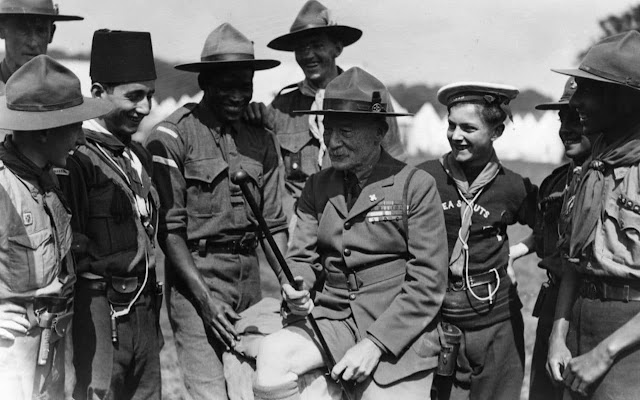Lord Baden Powell (1857 – 1941) British Founder of scout movement
Lord Baden-Powell Biography
Lord Robert Baden-Powell was a British soldier, writer, and founder of the scouting movement. He was born on February 22, 1857, in London, England. His upbringing was influenced by his father, who was a Professor of Geometry at Oxford University, and his mother, who was an artist. In this documentary, we will explore the life of Lord Baden-Powell and his contribution to the scouting movement.
Early Life
Lord Baden-Powell was the eighth of ten children and spent his early life in England, where he attended boarding school. He was a rebellious child and disliked formal education. However, he was interested in outdoor activities, especially camping and hiking. His passion for the outdoors would later become the inspiration for the scouting movement.
Military Career
Baden-Powell joined the British Army in 1876 and served in various parts of the British Empire, including India, Africa, and Malta. He gained fame during the Second Boer War, where he commanded the siege of Mafeking for 217 days. He used innovative tactics and strategies to defend the town against the Boer forces. The siege of Mafeking made him a national hero in Britain.
The Birth of Scouting
After the Second Boer War, Baden-Powell returned to England and published a book called "Aids to Scouting," which was a manual for military reconnaissance and scouting. To his surprise, the book became popular among youth groups, and he received many letters from boys who formed their own scouting patrols. This inspired Baden-Powell to develop a program for young people that focused on outdoor activities, leadership, and character development. In 1907, he organized the first experimental camp at Brownsea Island, Dorset, which marked the beginning of the scouting movement.
The Spread of Scouting
The success of the first experimental camp led Baden-Powell to write a book called "Scouting for Boys," which became an instant bestseller. The book was a guide for young people who wanted to form their own scouting patrols and included chapters on camping, hiking, first aid, and citizenship. The scouting movement spread rapidly, and by 1922, it had over a million members in the British Empire.
Later Life
Baden-Powell continued to be involved in the scouting movement for the rest of his life. He was appointed Chief Scout of the World in 1920 and traveled extensively, promoting scouting and meeting with scouts from different countries. He also founded the Girl Guides in 1910, which later became the Girl Scouts. Baden-Powell died on January 8, 1941, in Kenya, where he had lived since the 1930s.
Conclusion:
Lord Baden-Powell's legacy lives on through the scouting movement, which has inspired generations of young people to be active, responsible, and engaged citizens. His emphasis on outdoor activities, leadership, and character development has influenced many youth organizations around the world. His life is a testament to the power of one person's vision to make a positive impact on society.











No comments